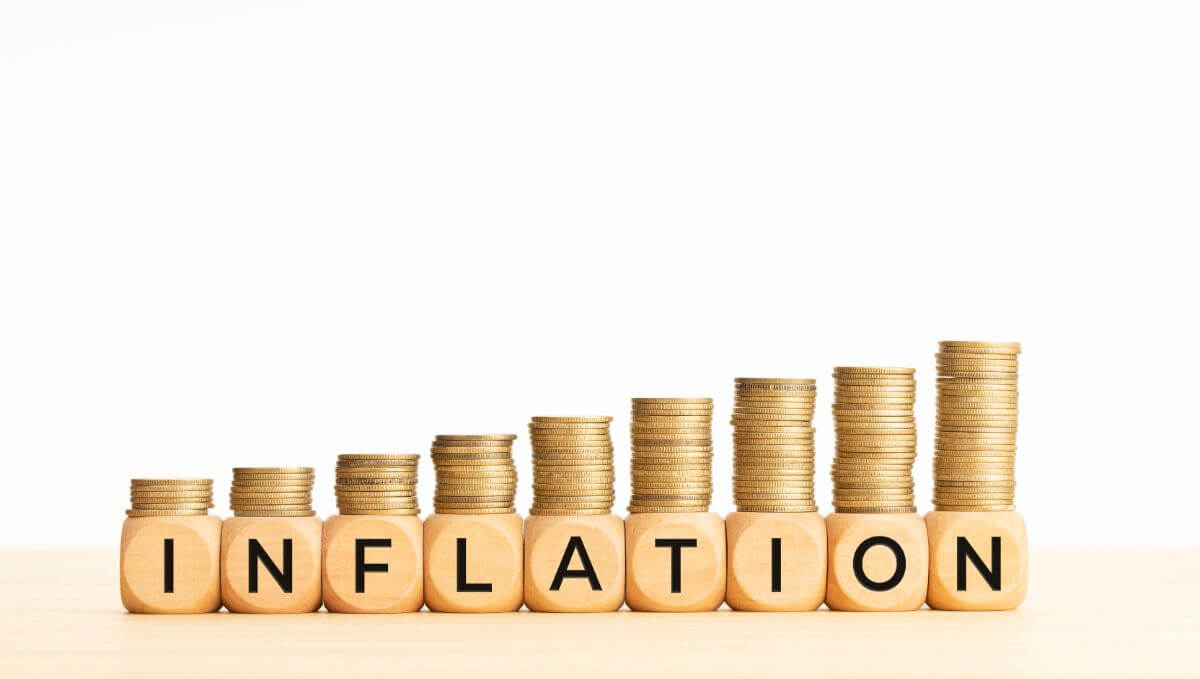The Impact of Inflation on Your Finances: 4 Things You Need to Know
May 26, 2023

In what ways can inflation affect your personal finances?
- Inflation limits your purchasing power
- The value of savings and investments decrease
- Borrowing and debt become more difficult
- Your personal budget undergoes major changes
- Strategies for protecting your finances from inflation
Inflation is a term that often makes headlines, but do you truly understand the impact of inflation on your personal finances?
Inflation is the gradual increase in the prices of goods and services over time. It is important to have a solid grasp of inflation’s effect on your financial well-being. In this blog post, we will explore five key things you need to know about the impact of inflation on personal finances.
Inflation Limits Your Purchasing Power

Purchasing power is the ability to buy goods and services with a given amount of money. Unfortunately, inflation has a detrimental effect on purchasing power. As prices rise, the value of money decreases.
For instance, what you could buy for Php1000 a few years ago may now cost significantly more due to inflation. Surely you’ve heard people share on social media how 3 years ago, they could still afford lots of items on a meager budget, but now can only buy a fraction of those items with the same amount of money.
This erosion of purchasing power can affect your ability to afford essential items and achieve your financial goals.
The Value of Savings and Investments Decrease
When it comes to savings and investments, inflation poses another challenge. Cash savings lose value over time as inflation erodes their purchasing power. For example, if inflation is at 3% annually, the value of your savings effectively decreases by that amount each year.
Similarly, inflation affects investment returns. While investments have the potential to grow, their returns must be bigger than inflation to retain or increase their real value. It’s essential to consider these factors when planning for the future.
Borrowing and Debt Become More Difficult
Inflation also affects borrowing and debt. When inflation rises, central banks often respond by increasing interest rates. Higher interest rates can make borrowing more expensive, making it harder to access credit or increasing the cost of existing debt. Furthermore, inflation diminishes the real value of debt over time. While the nominal amount remains the same, inflation erodes the purchasing power required to repay the debt.
During inflationary periods, it’s essential to carefully manage debt. Consider strategies such as refinancing at fixed interest rates or negotiating inflation adjustments in contracts or salary to minimize the impact on your financial obligations.
Your Personal Budget Undergoes Major Changes
Inflation should be a factor in your personal budgeting process. When setting a budget, consider the potential impact of inflation on your expenses. As prices rise over time, you may need to use more funds for essential items such as groceries, housing, and healthcare. Neglecting to account for inflation in your budget can lead to financial strain and difficulty in meeting your financial obligations.
To adjust for inflation in your budget, regularly review and update your spending categories based on price increases. Allocate a portion of your budget to an “emergency” category to accommodate unforeseen inflationary effects. Utilize tools and resources such as inflation calculators or financial apps that can help you track and manage inflation adjustments effectively.
Strategies for Protecting Your Finances from Inflation

Protecting your finances from the impact of inflation requires proactive measures. Diversifying your investments is a key strategy. By spreading your investments across various asset classes, you can potentially mitigate the risk of inflation’s impact on any single investment.
Investing in inflation-protected assets can also provide a hedge against inflation. These assets tend to retain their value or even appreciate during inflationary periods, offering a level of protection for your finances.
Furthermore, if you’re negotiating contracts or salaries, consider including provisions for inflation adjustments. By including these adjustments, you ensure that your income keeps up with rising prices, maintaining your purchasing power.
Key Takeaway
Inflation is a prevalent force that can significantly impact your finances. Understanding its effects on purchasing power, savings, investments, borrowing, debt, and budgeting is crucial for navigating an inflationary environment successfully. By staying informed, proactively adjusting your financial strategies, and taking necessary steps to protect your financial well-being, you can safeguard your finances from the adverse effects of inflation.
Learn from Benito Keh, an expert in business growth. Follow him for valuable advice on sales, marketing, and more. Contact him now for insights and guidance. Don’t miss out!